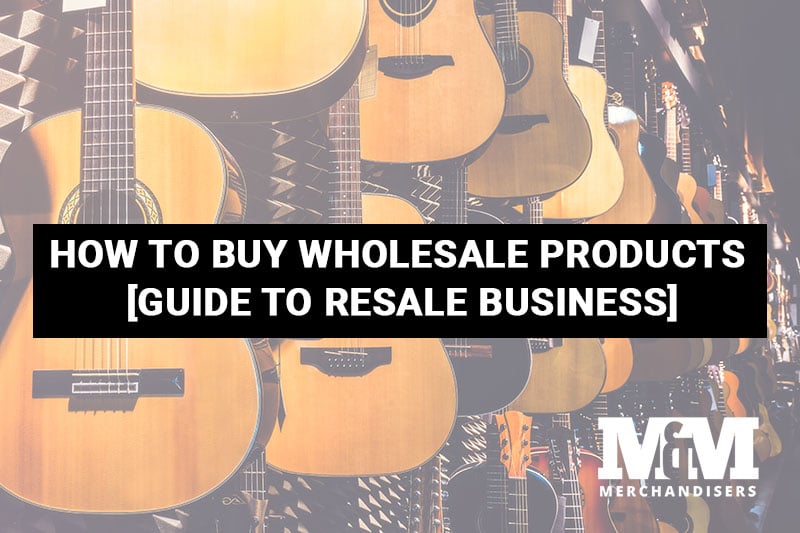How to Buy Wholesale Products [Guide to Resale Business]

If you’re someone who is opening a retail store or shop or simply buying wholesale for the first time, it’s paramount to understand the process behind buying wholesale products. The more informed you are, the more profitable your resale business can become.
Looking for a wholesale supplier for your store?
Let M&M Merchandisers keep your store stocked with the goods your customers want.
How to Buy Wholesale Products
When goods and products are manufactured, they are done so en masse. It's a wholesale company's job to sell these items in bulk to retailers. It's the retailers' job to then secure the actual consumers and sell at a markup as a middleman who has overhead such as marketing, a location, and staff.
As a retailer, you wouldn't buy product from other retailers to sell as your own. You wouldn't be likely to secure the bulk amount you need for your clientele, and you wouldn't turn a profit because the goods are already marked up. That's why retailers turn to wholesale distributors for their merchandise.
Considerations for Buying Wholesale as a Vendor
Buying at retail value as a consumer vs buying at wholesale value as a vendor come with different considerations:
- In order to make money dealing in bulk, wholesalers set a minimum order, which means you must be certain of your ability to sell a product at quantity.
- You're dealing with higher quantities, so you will want to ensure the quality of a product and its marketability before you buy.
- You must consider what the product's current retail value is vs. how much the wholesaler has it priced at... so you can maximize your gross profit per unit.
Tips for Bulk Buying Wholesale
- Make a plan and budget on how much money you plan to spend.
- Make sure you have the space to store the items. When buying multiple products in bulk, it can be easy to underestimate exactly the quantity of product you ordered at one time.
- Buy trendy or seasonal items in bulk before the season starts so that there's enough time to ship and stock the store in time for the optimal purchasing window.
- Work with a wholesaler you can trust and ask questions about the products you're considering.
How to Buy Wholesale for Resale
While there are situations in which a consumer may purchase wholesale goods, the vast majority of the time it’s to turn items around as a retailer to turn a profit. With this in mind, there are some questions that will need to be answered to set you up to purchase wholesale goods for your business:
Can I Use My EIN Number or Tax ID Number to Buy Wholesale?
It’s the reseller’s permit (resale number) that allows you to purchase items from a wholesaler without paying sales tax. A personal Tax Identification Number or Social Security Number is not sufficient to allow you to buy wholesale.
Before you apply for your reseller's permit, you must have a federal Employer Identification Number (EIN). This number is issued by the IRS, and it's easy to apply for one:
- Gather all of the materials you will need to complete your application. Usually one of the following:
- The business owner's Social Security Number
- The business owner's individual Tax Identification Number
- The business owner's Employer Identification Number
- Visit the IRS website and navigate to the section for businesses.
- From there, you should be able to find a section for Employer ID Numbers (EINs) that will direct you to the application page.
- The IRS website will guide you through your application.
Do I Need a Reseller Permit to Buy Wholesale?
If you intend to resell products you purchased wholesale, you will need to get a reseller's permit (also commonly referred to as sales tax identification number, resale number, or reseller's license). This number allows you to purchase from wholesale distributors without paying sales tax, so it's in your best interest to get one. In addition, many wholesale companies will not enter into a partnership with you if you don't have one. It helps them know that you are a legitimate business. Some states also require the reseller's permit to open a business checking account.
Here's how to get your reseller's permit:
- Find out which department you will need to apply for your license. Each state has a different system through which you can obtain one.
- Collect the necessary documents before beginning your application:
- Driver's license or state ID
- Bank account information for your business
- Names and locations of your suppliers
- Projected average monthly sales figures
- Business entity/structure of your business
- Incorporation date, corporate number, and FEIN number (if applicable)
- (Note that each state may have different requirements, so be sure to ready any documentation the department website provides).
- Be prepared to pay a fee to secure your license.
- From there, you'll likely receive your resale number right away.
Note: Depending on your circumstances, you may need a reseller's permit for each location your business operates in.
Choosing Where to Buy Wholesale Items
Once you have all the information you need to resell wholesale product, you can begin your wholesale buying strategy. One of the first things that you'll need to consider is what you want to buy and where you want to buy it from.
There are many options on where to buy wholesale items, including:
- Directly from the manufacturer
- From domestic wholesale suppliers
- Through dropshipping partnerships
However, the big thing to consider is the items that are available and how much margin you can get from the markup. These two considerations will drive the conversation on which supplier you end up choosing.
Advice for Bulk Buying Wholesale to Sell Individually
Some of the best items to buy in bulk and sell at retail prices include:
- Electronics
- Auto accessories
- Musical instruments
- Household gadgets
However, as a merchandising specialist, it will be up to you to develop an intuition of which products will fly off the shelves and what your customers really want from you as a retailer.
How Do You Calculate Wholesale Markup?
The next consideration is how much profit you can make on each unit sold. When evaluating which products to buy, you'll want to consider the wholesale price and compare it to the MSRP (Manufacturer Suggested Retail Price). Many manufacturers and wholesale suppliers will give you MSRP numbers so that you have a foundation to start with for how much to value the product at. You'll also want to consider whether you will mark it up to the MSRP or set a price of your own based on your knowledge of the current market and your existing customers.
The goal is to set prices that are competitive but also at a high enough margin to turn a profit for your store. To determine markup, you must set your desired profit margins and then do the markup math.
Here's how to calculate your retail price (what you should mark up your wholesale prices to):
1. Convert Profit Margin to Markup
In order to calculate retail price, you'll need to convert your profit margin into a markup number. While these two terms are commonly confused, markup refers to how much your price is marked up above the cost (wholesale price) while profit margin refers to how much profit you're making on top of your price.
Markup = Margin / (1 - Margin)
If you wanted to have a 40% profit margin, it necessitates a markup of .67 (67%).
- e.g. .67 = .40 / (1 - .40)
2. Calculate Retail Price Based on Markup
Retail Price = Wholesale Price / (1 - Markup)
If you purchased an item with a wholesale price of $30, and you wanted a markup of 67%, you would need to price the product at $90.91.
- e.g. $90.91 = $30 / (1 - .67)
How to Choose Wholesale Suppliers
The quality of your products affects your bottom line and the reputation of your store. That's why it's so important to work with a wholesale supplier that you can trust. There are a large volume of wholesalers out there, so how do you choose which one to go with?
- Speak to the supplier and get a feel for their communication style.
- Ask lots of questions!
- See if they would be willing to provide a sample.
- Research their reputation and see what other retailers might be saying about them.
- Take a look at their prices and compare with current retail values to see what the gross profit would be on some of their products.
- Evaluate if a large number of your competitors carry the exact items the wholesaler carries. It's better to get unique items than commodity items.
M&M Merchandisers is a Texas-based wholesale supplier that works with pawn shops and other retail outfits. Our goal is to help our customers with merchandising so they can profit and success. On your journey of choosing a supplier, be sure to consider us and apply to become a dealer.
Posted by Lois Haycock
Lois Haycock is a 20+ year retail and eCommerce veteran specializing in project management and business analysis of customer-facing systems and software. Lois is SVP of Digital Transformation at M&M Merchandisers. She also operates several eCommerce stores as well as an executive coaching business. Lois can be reached at lois.haycock@mmwholesale.com



